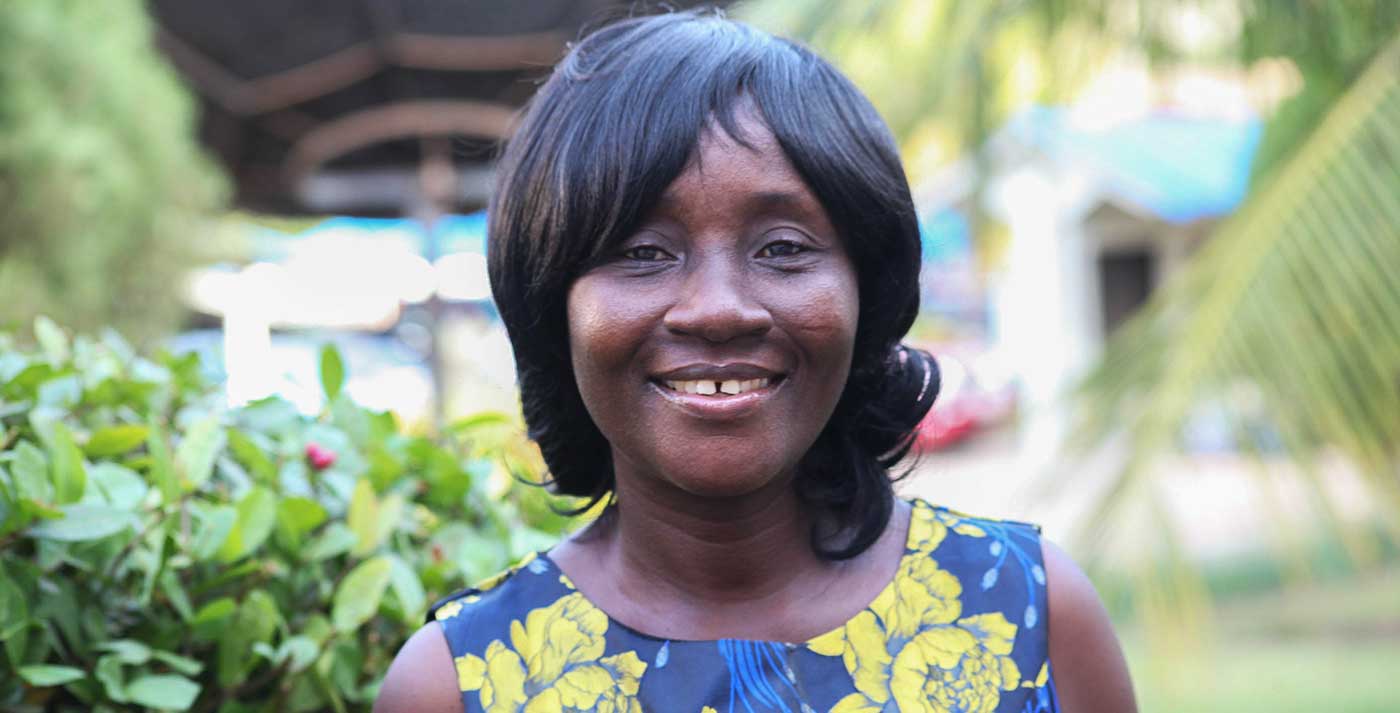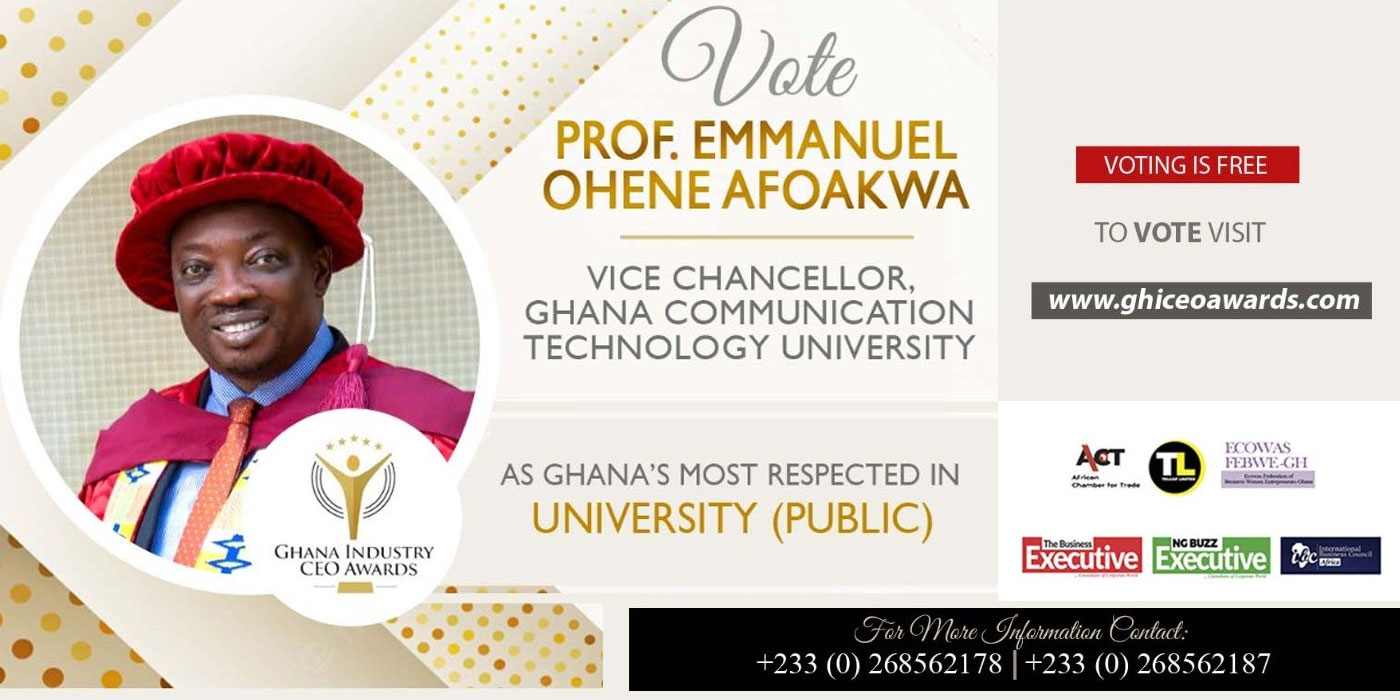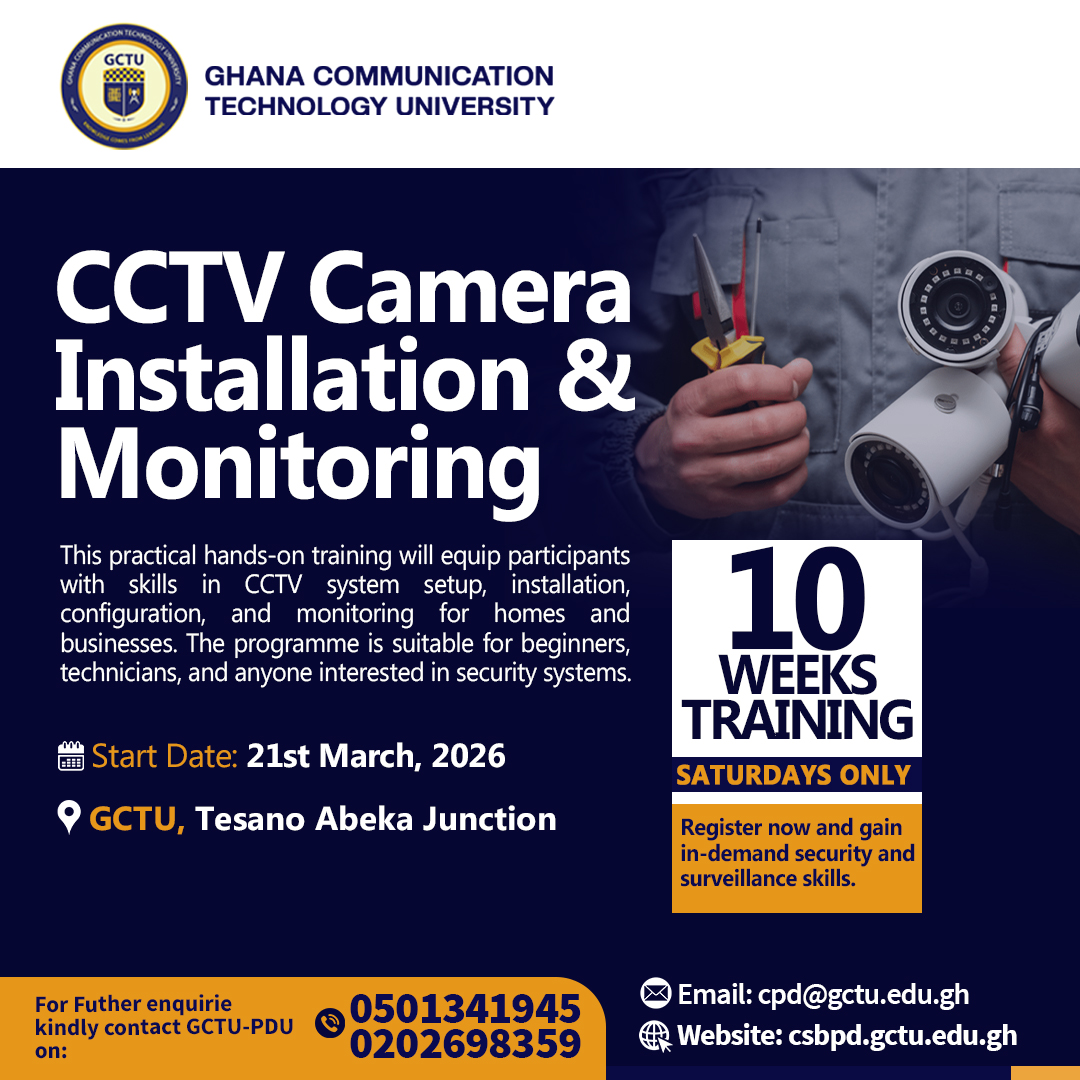
The Institute of Continuous and Distance Education (ICDE) at GCTU successfully organized a three-day training workshop for its facilitators from Wednesday, June 25 to Friday, June 27, 2025.
The intensive capacity-building session was aimed at strengthening the pedagogical and technological competencies of instructors engaged in the University’s distance education programmes.

The workshop, led by the Head of the Department of Distance Education at the University of Ghana and an expert in open and distance learning, Prof. Samuel Amponsah, focused on innovative and practical teaching methodologies for the online learning environment. It featured both theoretical and practical components, with key areas of focus including the application of Bloom’s Taxonomy in online delivery, development of comprehensive study guides and innovative digital pedagogies for engaging remote learners.

The Acting Pro Vice-Chancellor and Dean of the School of Graduate Studies and Research, Prof. Ebenezer Malcalm, who officially opened the training, emphasized the critical importance of distance learning in today’s educational landscape, referencing the COVID-19 era as a turning point in global education. He commended GCTU for being proactive in adopting blended and online models of instruction, even before the pandemic struck.
“Distance learning incorporating e-learning is the order of the day – learning everywhere, anytime, and on demand,” Prof. Malcalm stated. “We are taking our programmes to a new dimension with the help of experts like Prof. Amponsah and I urge everyone to fully engage with the sessions.”
Workshop Highlights and Key Takeaways

During his opening session, Prof. Amponsah outlined the objectives of the workshop and engaged participants in insightful discussions on teaching methodologies suited for digital platforms. He emphasized the importance of adapting traditional educational tools like Bloom’s Taxonomy to suit the online learning platforms. Facilitators actively contributed their expectations and shared ideas on improving instructional design for distance education.
Dr. Frank Loglo, Director of ICDE, in his closing remarks on the final day of the workshop, praised Prof. Amponsah’s contributions and underscored the critical insights gained from the sessions, including the importance of synchronous delivery, reflective assessment practices and the central role of Learning Management Systems (LMS) in modern distance education.
“In distance learning, the course module is the teacher, and the teaching assistant is the study guide,” Dr. Loglo explained. “Our facilitators must see themselves not as lecturers but as guides in a learner-centred ecosystem where preparation and support are key.”
Shaping the Future of Distance Learning

In a follow-up interview, Dr. Loglo shed light on the rationale behind the workshop. “Since the launch of our distance learning programmes, it has become essential to equip facilitators with the right skills to ensure quality delivery. This training focused on using digital tools in pedagogically sound ways, emphasizing the development of self-directed learners through comprehensive study guides and interactive online pedagogies,” he noted.
Dr. Loglo also highlighted challenges with facilitator availability during the workshop due to overlapping university activities. However, the ICDE addressed this by streaming the entire event live and making the recordings available for future reference.
The YouTube playlist for the full three-day workshop is available at:
https://youtube.com/playlist?list=PL64uu81EDldTggPeCGiZKRNFBh4VomNOL&si=K2PhS4YCJmxztl7A
Looking Ahead

This workshop marks the second of such trainings organized by ICDE this year, with more planned in the near future. The institute remains committed to building a robust, tech-driven educational ecosystem that aligns with the University’s vision of becoming the “Silicon Valley of West Africa.”
Dr. Loglo affirmed, “We are building not just an academic programme, but a transformative learning culture that places the student at the centre, ensures accessibility and upholds quality at every level.”










